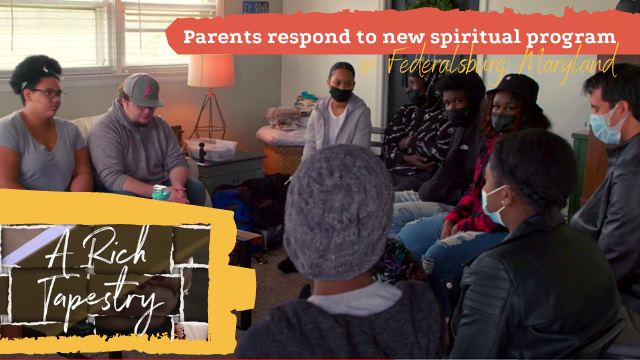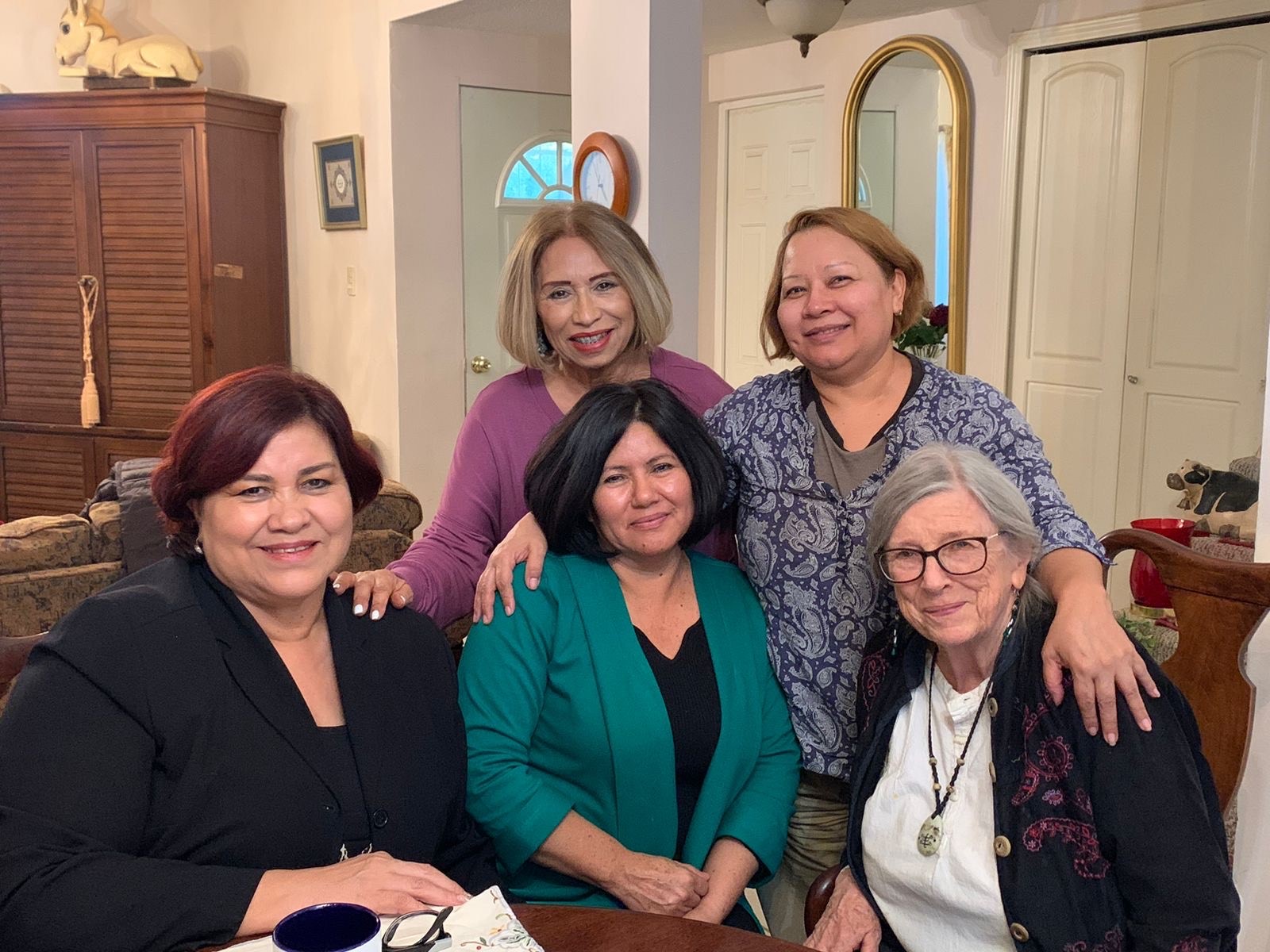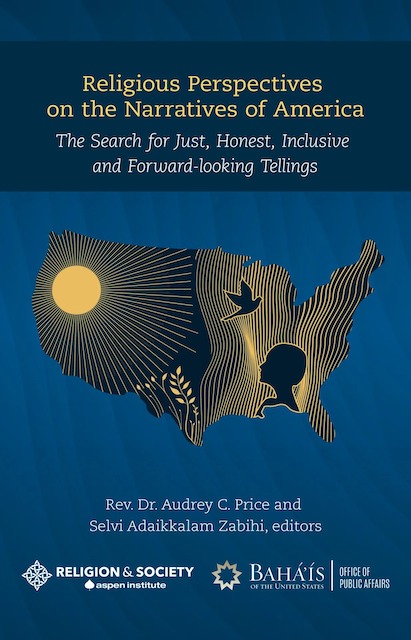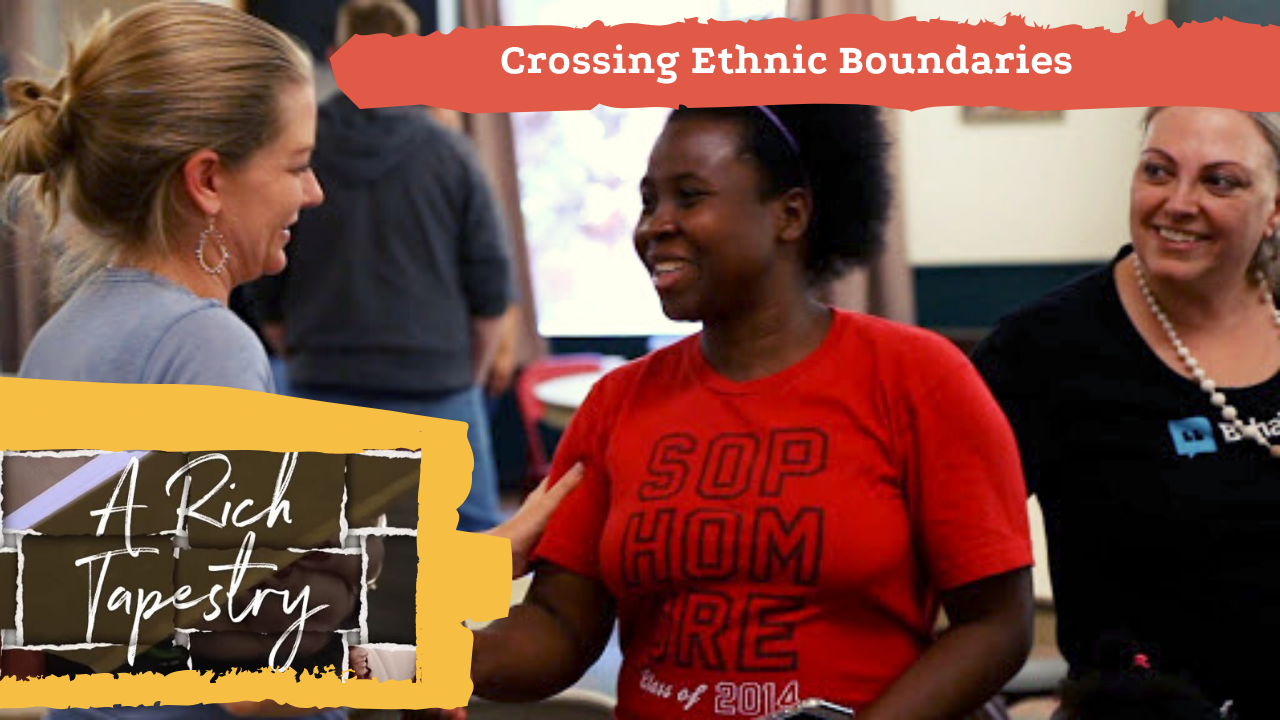
El Paso Bahá’ís transcend borders to create study circles

Since April 2023, Maria Mack and her husband Armando cross the Paso del Norte International Bridge every Sunday, from their home in El Paso, Texas, to Ciudad Juárez, in Mexico. The purpose of their weekly trek? Tutoring a Ruhi study circle.
“When some Bahá’í friends from Colima were coming to visit us in Juarez, my husband and I decided to invite some friends from the community to say some prayers and study [Book 1] Reflections on the Life of the Spirit,” Maria explains. To her surprise, their neighbor accepted the invitation and brought along her college-aged son. Amounting to nine participants, the group studied for six hours, and decided to make the study circle a weekly occurrence.
Today, the group has completed Ruhi book one, and is approaching the end of book two, Arising to Serve. Instead of proceeding to book three on Children’s Classes, the group requested to move directly to book four, The Twin Manifestations, due to their interest in learning more about the Twin Manifestations. “These individuals have shown their great [appreciation] for this experience and particularly for our consistency in opening our home in Juarez,” Maria says.
The trip back and forth between Mexico and the U.S. is no easy feat. While the drive into Juarez is often a 30-minute commute, the return into Texas averages around two hours, due to border traffic into the U.S. “The service is what pushes us,” Maria says. “To see the way it has affected the community, it inspires and moves us.”
The participants of Maria and Armando’s study circle, accompanied by a local recently declared Bahá’í, Ingrid, range across age groups. As a result, the study circle has split into two, one catering to youth and another to adults. Both groups begin their studies in collective prayer, and have developed strong bonds of friendship with one another that allow for open and honest conversations.
Maria, who was a Seventh-Day Adventist before becoming a Bahá’í in 2014, is able to empathize with and hold space for participants from Christian backgrounds who come with questions about how their faith and the Bahá’í activities can coexist. Maria reiterates the Bahá’í Faith’s acceptance of Jesus Christ as a Manifestation of God, and its overarching goals of unity in diversity. “They have this [internal] battle, but we never put pressure on them,” she says.
The opportunity for open dialogue welcomes participants to dive into independent investigation of truth, the same way Maria herself did over a decade ago. One participant, Valeria Ángulo Hernández, dreamt of Abdu’l-Baha after joining the study circle, and later declared her faith. “Their lives have changed,” Maria explains. They express how they’re different people as a result of the Holy Writings.”




